Navegação estrutural
101 Useful Volunteering Tips if you’re Travelling to Africa
-
- |
-
Read time
13minutes

Volunteering in Africa can be an incredibly rewarding and impactful experience. Whether you're helping with wildlife conservation, community development, education, or healthcare, there are numerous things to consider to ensure a meaningful and successful volunteer journey. Here's a comprehensive guide highlighting 101 things to take care of while volunteering in Africa:
Preparing for Your Trip

Preparing for a trip requires careful planning and attention to various crucial aspects to ensure a smooth and enjoyable experience. To ensure that everything goes as planned, it's critical to cover all the bases before a trip. Below is a summary of the essentials to take care of before you drive:
- Research: Before you head out, it's worth diving into the culture, customs, and history of where you're going. It'll make your trip way more engaging and also help you figure out how things work in that neck of the woods.
- Visa and Documentation: Absolutely, take care of all your paperwork beforehand. Verify whether a visa is necessary and ensure your passport and other identification documents are up-to-date. It's wise to double-check the entry requirements for the place you're heading to, just to be on the safe side.
- Health Check-Up: Before you go, pay a visit to your doc. Get the necessary vaccinations and any meds you might need for the place you're travelling to. Taking care of your health before you leave is a smart move.
- Travel Insurance: Don't skip this step. Get yourself solid travel insurance that covers all the bases – health, emergencies, trip cancellations, you name it. It's a safety net for unexpected stuff that might come up during your travels.
- Packing Right: Pack your bags with the climate and local customs in mind. Keep it light but pack what you'll need. Be ready for different weather and occasions with your clothing choices.
- Language Basics: Learn a few basic phrases in the local language. It's a good way to show respect for the culture and it'll make your interactions smoother. Just some simple greetings and phrases can make a big difference.
- Money Matters: Know the local currency and sort out how you'll handle your money while you're there. Whether it's exchanging currency, using credit cards, or local banking options, do your research ahead of time.
- Emergency Contacts: Put together a list of emergency contacts. Include local emergency services, your country's embassy or consulate, and important contacts back home. Keep this info handy throughout your trip. Taking care of these things upfront can help dial down any stress while you're travelling and let you dive into the culture and experiences waiting for you at your destination.
Cultural Sensitivity
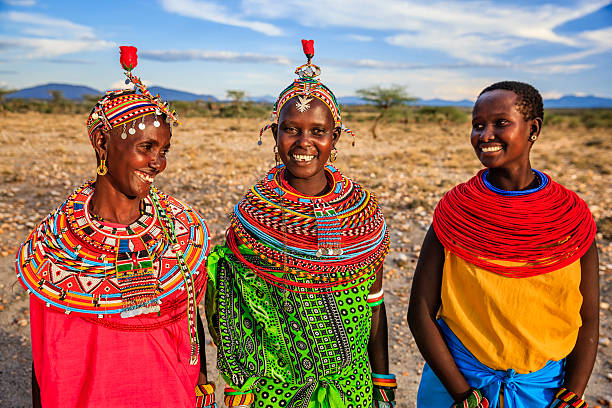
- Respect Local Customs: Understanding cultural norms and traditions is key. Respect them to show appreciation for the community's way of life.
- Dress Code: Adhering to local dress codes displays respect and helps you blend in with the community. It shows that you value their customs.
- Greet Locals: Learning how to greet people respectfully in the local language fosters a sense of connection and respect. It's a great way to break the ice and show your interest in their culture.
- Body Language: Gestures and body language can differ in meaning across cultures. Be mindful of your actions to avoid unintentionally causing offence.
- Photography Etiquette: Always seek permission before taking someone's photo. Respecting their privacy and cultural beliefs regarding photography is essential.
Safety and Health
- Safety Briefings: Attend orientation sessions provided by your organisation to grasp essential safety protocols. Understanding local guidelines is crucial for your well-being.
- Stay Hydrated: African climates can be scorching. Ensure you drink plenty of water to stay hydrated, especially during outdoor activities.
- Mosquito Protection: Protect yourself against diseases like malaria by using mosquito repellent and sleeping under mosquito nets, especially in at-risk areas.
- Sun Protection: Shield yourself from the sun's harsh rays by applying sunscreen and wearing protective clothing, such as hats and long sleeves, particularly during peak sun hours.
- First Aid Kit: Carry a basic first aid kit equipped with essentials like bandages, antiseptic wipes, and medications for minor injuries or ailments. It’s a handy precaution for unexpected situations.
Volunteering Responsibilities
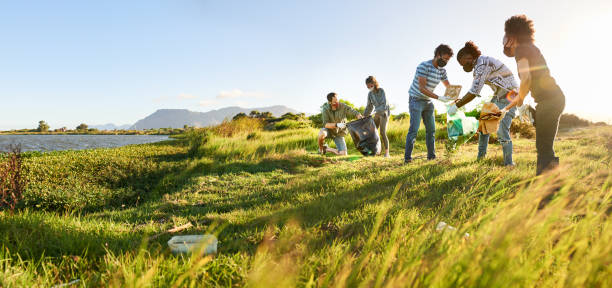
- Clear Expectations: Take time to understand your role and responsibilities as a volunteer. Clarify expectations with the organisation to ensure you're aligned with their goals.
- Team Collaboration: Foster a collaborative environment by working closely with other volunteers and local staff. Effective teamwork enhances the impact of your efforts.
- Respect Local Leadership: Show respect by following the guidance of local leaders and project coordinators. Their insight and experience are invaluable for successful initiatives.
- Adaptability: Embrace flexibility and open-mindedness as plans may evolve in a dynamic environment. Being adaptable allows for better problem-solving and adjustment to changing circumstances.
- Cultural Exchange: Embrace the opportunity to learn from local community members. Share your own experiences, but also listen and learn from the rich cultural heritage of the people you’re working with.
Environmental Considerations
- Waste Management: Dispose of waste responsibly, adhering to local recycling practices if available. Proper waste disposal helps maintain the beauty of the environment and minimizes negative impacts.
- Conservation Practices: Respect wildlife and follow guidelines for wildlife encounters and conservation efforts. Your actions can significantly impact the delicate balance of ecosystems.
- Energy Conservation: Conserve resources such as water and electricity whenever possible. Being mindful of resource usage contributes to sustainability in the areas where you're volunteering.
- Respect Wildlife: When encountering wildlife, maintain a safe distance and avoid disturbing their natural behavior. Respect their habitat to ensure their well-being and preservation of their environment.
Community Engagement
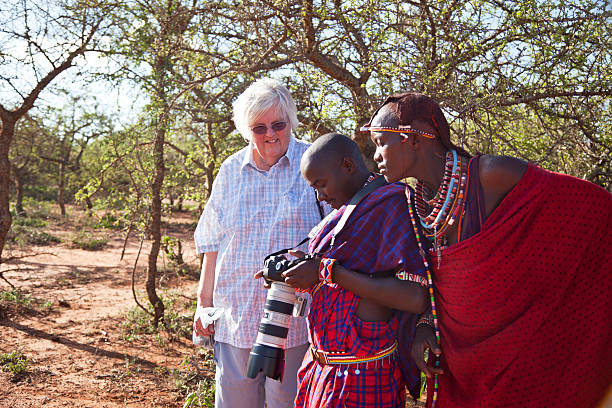
- Respect Local Authorities: Adhere to local laws and regulations diligently. Respecting and obeying these guidelines show appreciation for the community's norms and fosters a harmonious environment.
- Engage with the Community: Interact respectfully with locals to understand and appreciate their way of life. Listening to their stories and experiences can enrich your understanding of their culture.
- Support Local Businesses: Contribute to the local economy by purchasing goods and services from local vendors. This supports small businesses and helps in community development.
- Cultural Exchange Programs: Participate enthusiastically in cultural exchange programs. These programs foster mutual understanding and appreciation of diverse cultures, benefiting both volunteers and the local community.
Personal Well-Being
- Mental Health: Pay attention to your mental health and seek support if needed. Volunteering can be emotionally demanding, and it's important to address any concerns promptly.
- Rest and Relaxation: Schedule downtime to recharge and prevent burnout. Engage in activities you enjoy and take breaks when necessary to rejuvenate.
- Stay Connected: Maintain connections with friends and family back home for emotional support. Keeping in touch can provide comfort and a sense of connection, especially during challenging times.
- Self-Care: Implement self-care routines to nurture your physical and mental well-being. This includes activities like exercise, meditation, or hobbies that bring you joy and relaxation.
Communication and Reporting
- Regular Updates: Stay in communication with project coordinators, providing regular updates on your work. This ensures transparency and helps in assessing the progress of initiatives.
- Documentation: Maintain detailed records of your activities and achievements during your volunteering period. Documenting your work helps in assessing impact, sharing success stories, and learning from experiences.
- Feedback Sessions: Engage actively in feedback sessions. Sharing your thoughts and experiences helps in improving future volunteer programs. Constructive feedback contributes to making initiatives more effective and impactful.
Post-Volunteering Responsibilities
- Reflection: Take time to reflect on your experiences and the impact you've made. Consider how this journey has shaped your perspective and understanding of the community and its needs.
- Share Your Story: Share your volunteering experiences with others. Your story can inspire and motivate others to get involved, raising awareness about the challenges and needs within the community.
- Continued Support: Consider ongoing support for the projects or communities you worked with. This could involve fundraising, advocacy, or maintaining connections to provide continuous support even after your volunteering period ends.
Emergency Preparedness
- Emergency Plan: Familiarize yourself with emergency procedures and contacts. Know whom to contact and the steps to take in case of an emergency. This includes understanding evacuation routes and shelter locations.
- Medical Emergencies: Identify the locations of medical facilities and emergency services in the area where you'll be volunteering. Knowing where to access medical help is crucial in case of emergencies.
- Stay Informed: Keep yourself updated on local news and developments. Stay informed about any safety advisories or changes in the area you're volunteering in. Being aware of the local situation enhances your safety awareness.
Engaging with Children and Vulnerable Groups
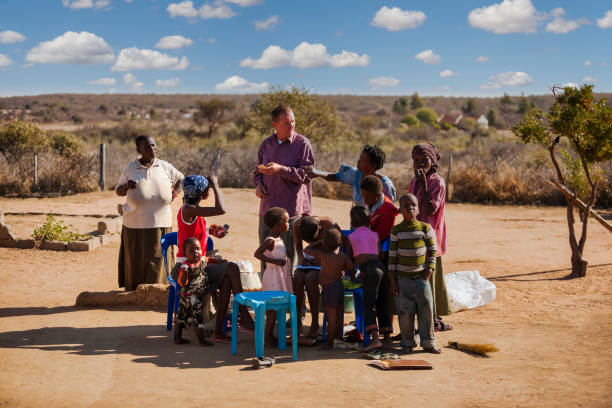
- Child Protection Policies: Adhere strictly to child protection policies set by the organisation you're volunteering with. These policies are designed to ensure the safety and well-being of children.
- Sensitivity Training: If you'll be working with vulnerable groups, especially children, consider undergoing sensitivity training. This training equips you with the knowledge and skills needed to interact responsibly and respectfully.
- Consent and Boundaries: Respect personal boundaries at all times and obtain consent for interactions, especially when dealing with children. Always priorities the comfort and safety of those you're engaging with.
Contributing to Sustainable Development
- Long-Term Impact: Priorities sustainable solutions over quick fixes. Focus on initiatives that have lasting benefits for the community, aiming for long-term positive change.
- Skills Transfer: Share your skills and knowledge with the community. Empower individuals by transferring practical skills that can help them improve their livelihoods.
- Empower Locals: Invest in capacity building within the community. Work alongside locals, empowering them to take charge of their own development and fostering self-sufficiency.
Learning and Growth
- Embrace Challenges: View challenges as opportunities for growth and learning. Embracing difficulties with a positive attitude allows for innovative solutions and personal development.
- Feedback and Improvement: Stay open to feedback. Use input from the community and project coordinators to refine your work, ensuring it aligns with the community's needs.
- Cultural Understanding: Embrace the opportunity to learn from the local culture and diverse perspectives. Engaging with the community's traditions and beliefs enriches your experience and fosters mutual understanding.
Time Management
- Effective Planning: Strategically plan your activities to maximize their impact during your stay. Identify priorities, set achievable goals, and collaborate with local stakeholders to ensure your efforts align with community needs.
- Punctuality: Respect time commitments and deadlines. Being punctual demonstrates professionalism and reliability, honoring the value of others' time and efforts.
Responsible Volunteering
- Avoid Voluntarism: Ensure your volunteering efforts focus on sustainable impact rather than short-term experiences. Priorities projects that offer genuine, long-lasting benefits to the community, steering clear of activities solely for personal fulfillment.
- Ethical Considerations: Reflect on the ethical implications of your volunteer work. Consider the potential impact, ensure cultural sensitivity, and uphold ethical standards in your interactions and initiatives.
Professionalism
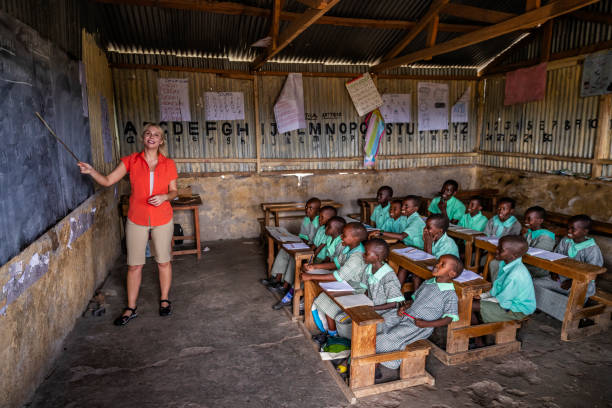
- Professional Conduct: Maintain professionalism in all interactions and your work ethic. Show dedication, reliability, and respect for the tasks and people involved.
- Respect Privacy: Honour the privacy of individuals and communities you work with. Avoid sharing personal information without consent and be mindful of cultural boundaries.
Language and Communication
- Effective Communication: Communicate clearly and respectfully with locals and fellow volunteers. Use simple language, gestures, or translation tools to ensure understanding.
- Language Barriers: Overcome language barriers creatively. Learn basic phrases in the local language and use visual aids or non-verbal communication when needed.
Financial Management
- Budgeting: Manage your finances wisely throughout your volunteering period. Plan your expenses and stick to a budget to ensure sustainability.
- Expense Tracking: Keep detailed records of expenses and retain receipts for reimbursement purposes. This helps maintain transparency and accountability.
Conflict Resolution
- Conflict Management: Learn conflict resolution techniques to address disagreements constructively and peacefully.
- Cultural Sensitivity in Conflict: Address conflicts while being mindful of cultural nuances and differences. Respect cultural norms and seek solutions that align with local values.
Volunteer Network

- Networking: Forge relationships with fellow volunteers to create a support system. Collaborate on projects, share experiences, and provide mutual support, fostering a sense of community and camaraderie.
- Resource Sharing: Share resources and best practices with other volunteers. Whether it's knowledge, skills, or tools, sharing resources optimizes the collective impact, benefiting both volunteers and the communities you serve.
Teamwork
- Collaboration: Work alongside locals and fellow volunteers, pooling your strengths and resources to achieve common goals. Embrace teamwork to maximize the impact of your efforts.
- Support Each Other: Offer support, encouragement, and assistance to fellow volunteers. Building a supportive community enhances morale and strengthens the collective impact of your work.
Resilience
- Adaptability: Stay adaptable in the face of challenges and changes. Flexibility allows for effective problem-solving in dynamic environments.
- Positive Mindset: Maintain a positive attitude, seeing obstacles as opportunities for growth. A resilient mindset helps overcome hurdles and maintain motivation.
Documentation and Reporting
- Accurate Reporting: Document your activities and achievements meticulously. Accurate reporting is essential for assessing the impact of your efforts and guiding future initiatives. Detailed documentation helps in evaluating progress and ensuring transparency.
- Photo and Video Consent: Always seek explicit consent before capturing or sharing photos or videos of individuals or communities. Respecting their privacy and cultural beliefs regarding imagery is crucial. Obtaining consent acknowledges their autonomy and ensures respectful representation.
Environmental Sustainability
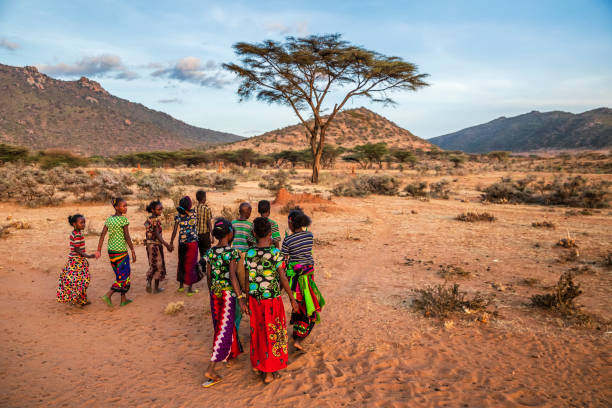
- Reduce, Reuse, Recycle: Embrace environmentally friendly practices by reducing waste, reusing resources, and recycling whenever possible. Minimize your ecological footprint by using items efficiently and disposing of waste responsibly.
- Sustainable Practices: Advocate for and practice sustainability throughout your volunteer work. Encourage the adoption of sustainable solutions that benefit both the community and the environment. Promoting responsible use of resources contributes to long-term environmental preservation and community well-being.
Social Engagement
- Community Involvement: Engage actively in community events and initiatives. Participating in local activities shows your commitment and fosters a deeper connection with the community.
- Social Integration: Interact and engage with locals to promote social inclusion and cultural understanding. Building relationships fosters mutual respect and enriches your volunteering experience.
Health and Safety Protocols
- Regular Health Checks: Prioritize your well-being by monitoring your health regularly. Seek medical assistance promptly if needed to ensure you can continue contributing effectively.
- Safety Training: Participate in safety training sessions provided by the volunteering program. Understanding safety protocols enhances your preparedness and contributes to a secure environment for both you and the community.
Cultural Immersion

- Cultural Exchange: Immerse yourself in the local culture by actively participating in cultural activities and events. Embracing cultural exchange fosters mutual learning and appreciation.
- Respect Traditions: Respect and actively participate in local traditions and ceremonies. Showing respect for the community's customs enhances your integration and demonstrates appreciation for their way of life.
Empathy and Compassion
- Empathetic Approach: Interact with empathy and compassion. Being empathetic allows for deeper connections and understanding within the community.
- Understanding Perspectives: Embrace diverse perspectives and cultural contexts. Understanding different viewpoints fosters mutual respect and effective collaboration.
Accountability
- Accountability in Work: Take ownership of your tasks and commitments. Being accountable ensures that your contributions are reliable and effective.
- Transparency: Maintain transparency in your actions and decisions. Transparency builds trust and credibility, crucial for successful collaborations.
Continuous Learning
- Openness to Learning: Be open to learning from the community and fellow volunteers. Embracing new knowledge and experiences enriches your understanding and contributes to personal growth.
- Adaptation to Change: Adapt and learn from changing situations and environments. Flexibility and adaptability allow for innovative problem-solving and resilience in dynamic settings.
Networking and Collaboration
- Collaborative Projects: Collaborate with local organisations for broader impact. Partnering with local groups amplifies the effectiveness and sustainability of initiatives.
- Networking Opportunities: Build connections for potential future collaborations and support. Networking expands opportunities for continued involvement and collective impact.
Team Dynamics
- Team Bonding: Foster a positive team environment through team-building activities. Building strong connections with fellow volunteers promotes effective collaboration.
- Conflict Resolution: Address conflicts within the team constructively. Open communication and conflict resolution skills are essential for maintaining a harmonious environment.
Cultural Sensitivity Training

- Pre-Departure Training: Attend cultural sensitivity training sessions before departure. Understanding cultural nuances is vital for respectful and effective engagement within the community.
- Continuous Learning: Keep learning about the culture and customs during your stay. Embrace every opportunity to deepen your understanding of the local culture and traditions.
Personal Growth and Development
- Reflective Practice: Reflect on your experiences for personal growth and development. Self-reflection enhances learning and helps in understanding the impact of your actions.
- Seeking Feedback: Seek feedback for continuous self-improvement. Feedback from peers and coordinators aids in refining your approach and contribution.
Disaster Preparedness
- Emergency Plan: Familiarize yourself with emergency protocols in case of natural disasters. Understanding emergency procedures ensures preparedness in unexpected situations.
- Emergency Contacts: Keep emergency contacts readily available at all times. Having contact information for local emergency services and support is crucial for swift action when needed.
Reflective Practices
- Journaling: Maintain a journal to record your experiences and thoughts. Journaling serves as a personal reflection tool and helps in processing your emotions and experiences.
- Group Reflections: Participate in group reflection sessions with fellow volunteers. Sharing experiences and insights fosters collective learning and deeper connections.
Volunteering Ethics
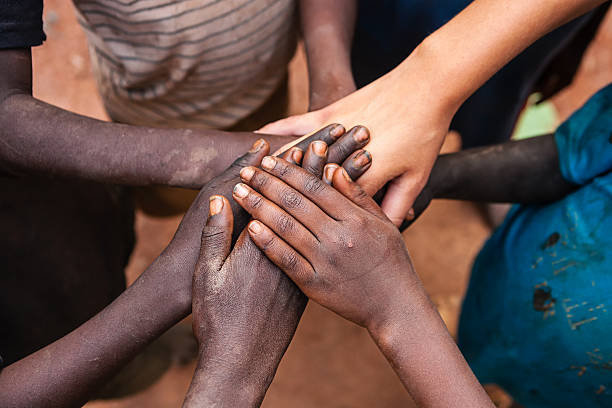
- Journaling: Maintain a journal to record your experiences and thoughts. Journaling serves as a personal reflection tool and helps in processing your emotions and experiences.
- Group Reflections: Participate in group reflection sessions with fellow volunteers. Sharing experiences and insights fosters collective learning and deeper connections.
Volunteering in Africa can be a life-changing experience, both for the volunteer and the communities being supported. By being well-prepared, culturally sensitive, and committed to making a positive impact, volunteers can contribute meaningfully to various causes while fostering mutual respect and understanding across cultures.
Software designer, founder, and amateur astronaut.
I’m Spencer, a software designer and entrepreneur based in New York City. I’m the founder and CEO of Planetaria, where we develop technologies that empower regular people to explore space on their own terms.





